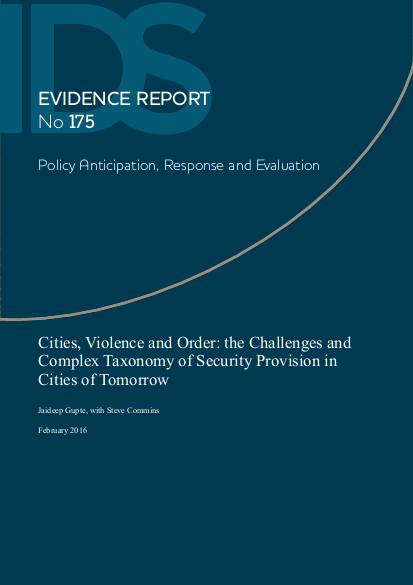
How will security in cities be understood in the future? For whom will it be provided? What are the ways by which urban security provision will be governed? And, what impact will violence and order in cities have on the processes of state-building in fragile contexts in the future? These questions are uppermost in the minds of policymakers and academics. A growing body of evidence underlines the heterogeneity of security processes and outcomes, both within and between cities. Notwithstanding these recent advances, contemporary paradigms of urban development do not substantively account for the ways in which the social, political, economic and physical aspects of urban form interact and shape the mechanics of security provision in cities. There is a perceptible gap in development policy, compromising the manner in which international donors, multilateral agencies, national and sub-national policymakers respond to urban challenges today. Part of this gap is due to the separation between development theory or urban planning, and issues of fragility due to conflict and violence. These have usually been different epistemic and operational domains, to the detriment of either a comprehensive approach to analysing fragility and violence or effective approaches to security provision.
Links
Resource collections
- UN Habitat - Urban Response Collection
- Urban Response - Urban Crisis Preparedness and Risk Reduction
- Urban Response Collection - Community Engagement and Social Cohesion
- Urban Response Collection - Economic Recovery
- Urban Response Collection - Environment and Climate Change
- Urban Response Collection - Housing, Land and Property
- Urban Response Collection - Urban Crisis Response, Recovery and Reconstruction
- Urban Response Collection - Urban Resilience